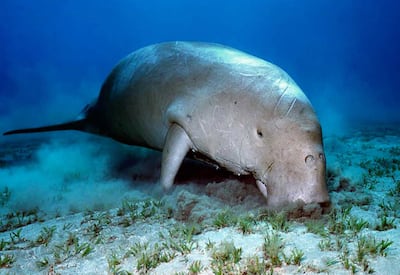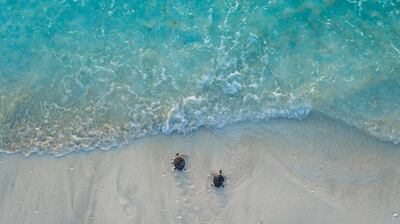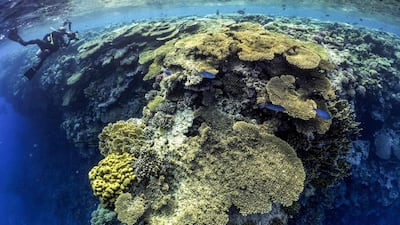Marine Protected Areas boost fishing and tourism, with profits sometimes in the billions, according to the most comprehensive global assessment of its kind to date.
MPAs, or national parks at sea, are found in many of the world's oceans, with past research showing fully protected areas can help restore fish populations by 500 per cent on average, yielding bigger fish over time.
Now a new study of more than 50 protected areas in more than 30 countries in North America, South America, Europe, Africa, Asia and Oceania has concluded they also bring significant financial benefits.
“In every corner of the globe, ocean protection boosts economies,” said Dr Mark John Costello, the study author and a professor at Norway’s Nord University.
“For far too long, marine parks have been overlooked as GDP generators and job creators.”
Dr Costello said the study offers the strongest evidence yet that protecting the ocean replenishes it with abundant fish, protects against climate change, while boosting local and national economies.
“Now, we can add tourism operators and fisheries to the list of ocean protection beneficiaries,” he added.
The study looked at 51 MPAs representing a range of ecosystems, from coral reefs, kelp forests, mangroves, rocky reefs, and salt marshes, to mudflats and sandy and muddy seabed habitats. They use a range of protection methods, with some allowing or restricting many human activities and others banning human activities altogether.
Less than 8 per cent of the world’s seas are protected, far short of a global goal of 30 per cent.
“The ocean is under threat from us. Science shows that establishing national parks at sea will help ocean life to bounce back – and provide more benefits to humanity,” said Enric Sala, founder of National Geographic Pristine Seas and author of the award-winning book The Nature of Nature.
He added: “Outdated misconceptions about the economic impacts of marine protected areas are blocking progress on the world’s urgent conservation goal.

“This study demonstrates that both fishing and tourism benefit from national parks of the sea – a final blow to the argument that conservation is costly and harms fishing.”
The study found economic benefits to fisheries for 25 countries spanning the North Atlantic, North Pacific, South Pacific and Indian oceans.
Marine reserves in the study included Ras Mohammed National Park in the Red Sea, Egypt, as well as other protected marine areas in the UK, Spain and Sweden.
Benefits to fisheries adjacent to the protected areas were detected in 46, or 90 per cent of the MPAs, including an increased fishery catch for 76 per cent and bigger body size, at 25 per cent.
Examples of economic benefits from tourism were found in 24 countries, including France, Spain, Italy and New Zealand.
Coral reefs, mangroves and seagrass ecosystems were the most profitable, with some individual MPAs generating billions of dollars in revenue each year.
The MPAs that delivered the most economic benefits were strictly protected, where fishing and other damaging activities are banned.

These are also known as no-take marine reserves. Currently, less than 3 per cent of the global ocean is under this type of full protection.
MPAs are found all over the world, including the UAE, which was not included in the study but consistently ranks among countries with the highest percentage of protected marine areas.
Protected areas in the UAE account for around 12 per cent of its marine territory, far above the global average of 7.5 per cent.
They include Saadiyat Marine National Park, a 59-square kilometre area home to endangered Hawksbill sea turtles.
Another protected area in the emirate of Abu Dhabi, the 4,255-square kilometre Marawah Marine reserve, is home to the world’s second largest dugong community.
Permitted activities in the protected areas include diving and snorkelling, plus, in the case of Marawah, recreational fishing with a line and rod.
However, anchoring, jet skis, fishing, de-ballasting, sewage discharge, collecting shells and corals, and rubbish disposal are banned in both.


